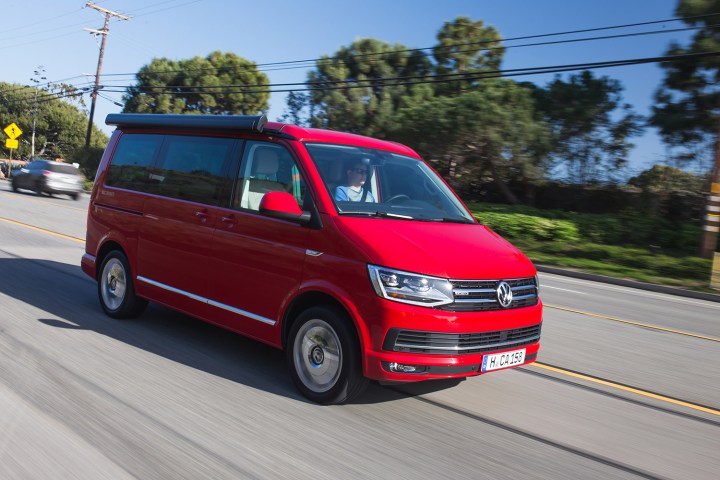
We first heard about Apple’s idea for a driverless shuttle service last year. It looks as if the plan is finally coming together, though you’ll have to work for the company to have a chance of trying it out.
The tech giant recently inked a deal with automaker Volkswagen to use its new T6 Transporter van for the planned service, the New York Times reported this week.
The vehicle will be powered by Apple’s autonomous technology, which it has been steadily developing over the last few years.
The self-driving shuttle will ferry employees along a specific route between Apple Park, the company’s recently opened “spaceship” headquarters in Cupertino, California, and 1 Infinite Loop, its former head office located about a mile down the road. Besides offering a convenient transportation service to its workers, the scheme will also give Apple an opportunity to hone its technology through constant monitoring and testing.
Confirming earlier reports, the Times’ unnamed sources said that Apple had also been in talks with BMW and Mercedes-Benz with a view to creating an all-electric self-driving car, but the discussions ended in deadlock as the car companies pushed back against various Apple demands regarding the control of data and design. The precise terms of the deal with Volkswagen have not been reported.
After years of rumored uncertainty within Apple over the direction of its autonomous-car program, it seems that the current focus has shifted to the development of its autonomous technology via the shuttle service, combining its own software with a modified vehicle rather than building its own car from scratch.
The T6 vans used by Apple will reportedly retain the frame, wheels, and chassis of the T6 vans, but will include a newly designed dashboard and seats, as well as the all-important computers, cameras, and sensors that equip the vehicle with its autonomous capabilities.
For safety reasons, an engineer will stay behind the wheel of the autonomous van to monitor performance and take over should something go awry as it tootles around the Cupertino campus.
Originally, it had been hoped to have the shuttle service up and running by the end of this year, but delays in the project mean it’s more likely to hit the road sometime in 2019.
Other testing by Apple
Besides the proposed shuttle, Apple is also testing 55 modified Lexus RX450h vehicles on public roads in California. The company started testing its autonomous vehicle technology on public roads with just three cars in April 2017, and has expanded its fleet gradually over the last year.
Competition is growing in the race to develop efficient and safe autonomous vehicle technology, with a myriad of deals taking place between tech firms and long-established automakers in a bid to stay ahead of the pack. Companies are continuing to jostle for position, so it’s likely to be some time before we can fully understand the direction the market is likely to take, though recent announcements suggest that ridesharing services will be the initial target of many of those currently developing the technology.


